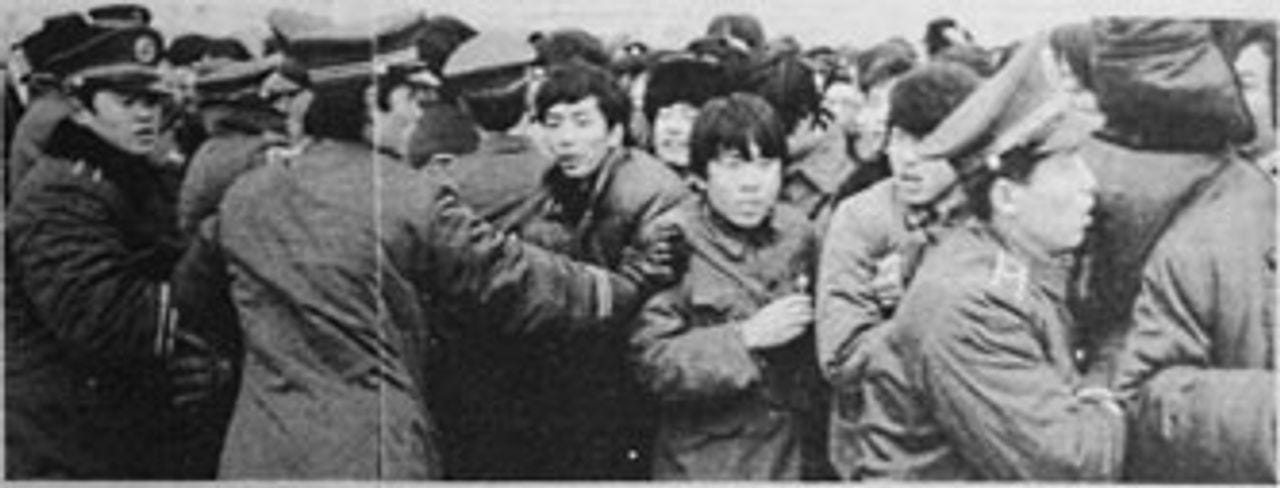This Week in China's History: The Resignation of Hu Yaobang
January 16, 1987
Listen to the audio narration in the embedded player above!
Succession is one of the most difficult challenges facing any leader. This column has visited that topic in the Ming dynasty, the Qing dynasty, and even, by analogy, in the United States. Ruling encourages the accumulation of authority, while succession requires relinquishing some power so that the next generation can step in. Many leaders find it difficult, even intolerable, to make the move toward transition.
So it was that in January of 1987, the head of one of the world’s largest political parties resigned, the apparent loser in a power struggle over generational change in China’s leadership. In his new biography The Conscience of the Party, Robert L Suettinger describes Hu as “a capable and decent man operating in a system that did not always reward decency and innovation.” His, Suettinger writes, “is a tragic story of one man’s brave effort to bring about social, economic, and political improvement for the many, but losing out to the greed, envy, and power of the few.”
Hu Yaobang made his most indelible mark on China early in the 1980s, a time when China was transforming itself. In his book Never Turn Back: China and the Forbidden History of the 1980s, Julian Gewirtz sums up the official narrative of the era “as a time of linear change, moving smoothly from Deng Xiaoping’s rise to power in 1978 and the leap into ‘reform and opening’ to new heights of wealth and modernization” before a needle-scratch new paragraph: “This story is a myth.”





